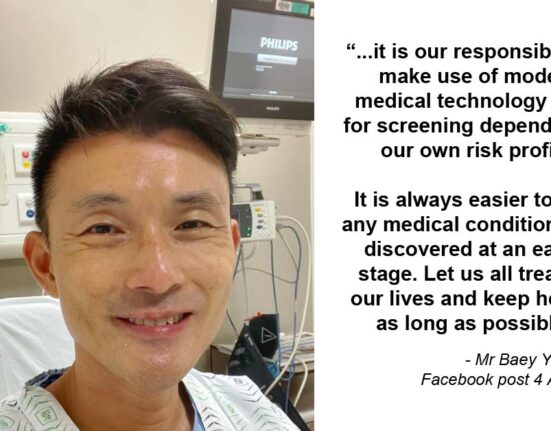Different types of treatment are available for prostate cancer. Prostate cancer treatment depends on a number of factors including the stage of cancer and the patient’s overall health, as well as the potential benefits or side effects of the treatment.
Active Surveillance or Watchful Waiting
Active Surveillance
As some prostate cancers are slow growing and may take many years to show any symptoms or spread, certain males with diagnosed prostate cancer may not need immediate treatment. Active surveillance refers to a protocol of closely observing patients with low-risk localized prostate cancer while keeping the option of deferred curative treatment open.
Watchful Waiting
Watchful waiting may be an option for elderly men and those with other serious or life-threatening illnesses who are expected to live less than 5 years. Watchful waiting involves a less intensive follow-up compared to active surveillance. If the cancer is found to be worsening or showing symptoms such as pain or blockage of the urinary tract, then treatment may be recommended.
Surgery for Prostate Cancer Treatment
Surgery involves the removal of the prostate including some surrounding tissue and a few lymph nodes. This is a common treatment for localised prostate cancer. There are two options, open or laparoscopic surgery:
Radical (Open) Prostatectomy
A radical prostatectomy is the surgical removal of the entire prostate and the seminal vesicles. Lymph nodes in the pelvic area may also be removed. This operation has the possibility of affecting sexual function. Urinary incontinence is also a potential side effect of radical prostatectomy.
Robotic Prostatectomy
Compared to open surgery, robotic surgery has the same cancer related outcomes. However, robotic surgery has advantages including: less blood loss, less pain, shorter length of hospital stay, and reduced complications such as blood clots and bladder neck scarring. Unless cancer is suspected in the nerve tissue, surgeons will use nerve-sparing techniques during robotic prostatectomy to minimize the surgical impact on sexual function.
Radiation Therapy
Radiation therapy uses high-energy beams to kill cancer cells or prevent their growth. There are 3 main forms of radiotherapy used:
External Beam Radiotherapy (EBRT)
This treatment focuses radiation on an area affected by cancer. EBRT includes:
- Intensity modulated radiation therapy (IMRT – used most frequently)
- Stereotactic body radiotherapy (SBRT)
- Three-Dimensional Conformal Radiation Therapy 3D-CRT
- Proton beam radiotherapy (This will soon become available. It may offer a better longer-term side effects profile)
Brachytherapy
This involves the surgical placement of permanent or temporary implants to deliver radiation to the prostate.
Bowel Problems Associated with Radiotherapy
Radiation can irritate the rectum and cause a condition called radiation proctitis. This can lead to diarrhoea, sometimes with blood in the stool.
Treatment of Metastatic Prostate Cancer
Androgen Deprivation Therapy (ADT)
Metastatic prostate cancer typically involves the bones. The cornerstone of treatment is androgen deprivation therapy (ADT). This will be either in the form of surgical castration or medical castration using gonadotrophin-releasing hormone agonist or antagonist. In some situations, upfront addition of novel androgen receptor signalling inhibitors and / or chemotherapy to ADT may be used in patients who have metastatic disease at presentation.
In patients who progressed after ADT, there are various options including:
Novel Androgen Receptor Signalling (ARS) Inhibitors
ADT stops androgens production from testicles. However, small amounts of androgens are still produced in the adrenal glands and prostate cancer cells. Drug that blocks the CYP17 enzyme can lead to suppression of androgens production in adrenal glands. New anti-androgens are drugs that prevent binding of androgens to receptors on prostate cancer cells. ARS inhibitors are effective oral medicines with tolerable side effects profile
Chemotherapy
Chemotherapy drugs attack rapidly dividing prostate cancer cells and have been shown to help prostate cancer patients live longer. Drugs are typically administered as infusion in outpatient.
Radiopharmaceuticals
Injectable drugs containing radioactive elements that are preferentially taken up by bones can release high-energy radiation over short distances to destroy cancer cells in bones with minimal toxicity to other organs or bone marrow.
Poly (ADP)-Ribose Polymerase (PARP) Inhibitor
Prostate cancer cells may carry mutations in DNA repair genes. These mutations cause abnormal DNA repair, leading to accumulation of abnormal cells. PARP inhibitors completely block DNA repair pathways in cells with DNA repair mutations, leading to cancer cells death.
Radionuclide
Prostate-specific membrane antigen (PSMA) is a protein found in most cancer cells. Radioactive medicines can be attached to PSMA-617 molecules, allowing the radioactive drugs to be delivered directly into prostate cancers that express PSMA. High-energy radiation is released locally with minimal effects on healthy tissues.
Immunotherapy
Cancer cells can turn off ‘checkpoint proteins’ to prevent the immune system from attacking them. Drugs called checkpoint inhibitors can be used for people whose prostate cancer cells have tested positive for specific gene changes, such as a high level of microsatellite instability (MSI-H), or changes in one of the mismatch repair (MMR) genes.
Bone-Targeting Agents
Prostate cancer cells that spread to bones can weaken the bones, cause bone pain and predispose to fractures. Drugs that inhibit bone resorption can be used concurrently with treatment options listed above to prevent or delay complications from bone metastases.
Deciding About Your Treatment
Choosing the treatment that is right for you may be hard. Talk to your doctor about the treatment options available for your type and stage of cancer.
[Updated 15 Aug 22]

Protect against cancer, cardiovascular disease, and other chronic diseases with regular health screening. Compare and shop for health screenings from Singapore and regional healthcare providers at a single convenient platform - shop.health365.sg
This article is informative only and is not intended to be a substitute for professional medical advice, diagnosis, or treatment, and should never be relied upon for specific medical advice.

























































